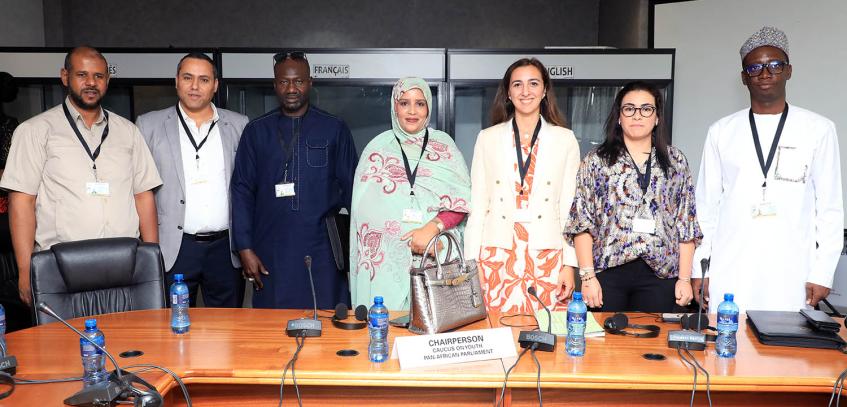Amid the ongoing Fourth Ordinary Session of the Sixth Parliament of the Pan-African Parliament in Midrand, South Africa, the Youth Caucus convened with a shared commitment to advancing youth empowerment and increasing young Africans' representation in governance. Guided by the African Union’s 2024 theme, “Educate an African Fit for the 21st Century: Building Resilient Education Systems for Increased Access to Inclusive, Lifelong, Quality, and Relevant Learning in Africa,” the Caucus outlined its vision and strategic priorities for the years ahead, setting a bold agenda for transformative change across the continent.
Key agenda items included the 2024 Youth Conference and a series of initiatives planned for 2025-2026. The Caucus highlighted upcoming events such as the Statutory Meeting of the Youth Assembly during Pan-African Parliament sessions, the observance of International Youth Day on 12 August 2025, and a Youth Day celebration. Planned activities also include participation in the ECOSOCC Youth Forum from 15-17 April 2025 and a regional advocacy campaign in September 2025 to encourage African states to ratify the African Youth Charter. Closing the year, a youth conference scheduled for December 2025 will spotlight the African Union’s theme, “Justice for Africans and People of African Descent through Reparations.”
Under the leadership of Chairperson Hon. Laila Dahi from Morocco, the Youth Caucus has established itself as a powerful advocate for the rights and interests of Africa’s youth. Dedicated to promoting youth-led development, the Caucus focuses on addressing challenges in education, employment, healthcare, and leadership representation. Their work plan centers on four key areas: policy advocacy, civic engagement, youth empowerment, and partnership building. By lobbying for youth-centered policies and creating programs to equip young people with essential skills, the Caucus aims to cultivate a generation that is politically aware, engaged, and prepared to lead.
However, challenges remain. During the session, members voiced significant concerns about funding shortages, underscoring the need for stronger financial and institutional backing. They called for greater engagement from political authorities to enhance the Caucus’s impact. Discussions also explored funding solutions, including partnerships with NGOs, youth associations, and the private sector, as well as grants that could support the Caucus’s initiatives long-term.
This meeting marks an important milestone as the Youth Caucus moves forward with renewed resolve to make Africa’s young people active participants in shaping the continent’s political, economic, and social landscape. Their advocacy and initiatives underscore a commitment to building a future where Africa’s youth can thrive and lead, fostering a more inclusive and prosperous continent for generations to come.
-Ends-








